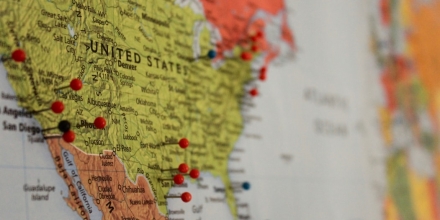Past events
COVID-19 and policy choices
Daniel Rees, Bank for International Settlements; Hilde Bjornland, BI Norwegian Business School, and James Morley, University of Sydney, will share their views on the trade-offs between growth, population containment, and health in a COVID world in a panel discussion on June 4, 2020.
Launch COVID-19 and the macroeconomy research program
To celebrate the launch of the new research program ‘COVID-19 and the macroeconomy’ in the Centre for Applied Macroeconomic Analysis a zoom panel is planned for Tuesday, May 19, 2020.
Demographic impacts on life cycle portfolios and financial market structures
The paper presented in this seminar provides a framework to endogenise rates of return for risk-free bonds and risky capital in an overlapping generation model, where the return on capital is endogenized by introducing idiosyncratic production shocks to avoid computation challenges associated with aggregate production shocks in the literature. The framework enables the interaction between financial markets and macroeconomic conditions in a production economy.
Macroeconomic and environmental implications of a demographic transition in a life-cycle model
This seminar highlights the importance of incorporating demographic considerations into climate-economy models and proposes an appropriate modelling framework.
Remittance trap: myth or reality? Threshold study of remittances and growth
The paper presented in this seminar revisits the debate on remittance and growth nexus, examining whether there is a ‘remittance trap’ or ‘threshold’ which remittances start to have a negative effect on growth.
The heterogeneous effects of global and national business cycles on employment in US states and metropolitan areas
The growth of globalisation in recent decades has increased the importance of external factors as drivers of the business cycle in many countries. Globalisation affects countries not just at the macro level but at the level of states and metro areas as well. The paper presented in this seminar isolates the relative importance of global, national and region-specific shocks as drivers of the business cycle in individual US states and metro areas.
Does gender affect innovation, credit access and environmental outcomes?
Despite the claims that women fail to access education, job opportunities and political responsibility compared with men, the role of women has gradually changed, and there has been a significant increase in the number of women entrepreneurs recently. Using the data from Vietnam SMEs for the period from 2007 to 2015 and fixed effect estimations, Hang Hoang explores the effects of gender on SME activities in three dimensions: innovation, credit access and environmental outcome.
Tipping, the optimal carbon price and weighing cows, geoengineering and coal
In this seminar, Anthony Wiskich will describe an integrated assessment model with an unknown temperature threshold where severe and irreversible climate impacts, called a tipping point, occurs.
Welfare multiplier of public investment
In this seminar Juha Tervala will analyse the welfare multipliers of public spending — the consumption equivalent change in welfare for a one dollar change in public spending — in a DSGE model.
Investigating the drivers of international comovement in real financial asset returns
There is a substantial body of theoretical and empirical research on asset price comovement and determinants. The empirical analysis presented in this seminar differs in that it incorporates a channel for cross country comovement in asset prices, as well in a set of proposed asset price determinants, across a sample of nine OECD countries.
Pages
Updated: 27 July 2024/Responsible Officer: Crawford Engagement/Page Contact: CAMA admin




















